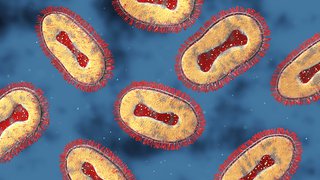Coping with crisis fatigue: 7 tips to ‘keep calm and carry on…’
March 3, 2022

The COVID-19 pandemic has now entered its 27th month. In that time frame, we have witnessed and lived through a series of global and national crises: the death of George Floyd, a bitterly contested presidential election, the Jan. 6 riot at the Capitol, wildfires, tornados, Russia’s invasion of Ukraine, and, most recently, mass shootings at a Buffalo supermarket and an elementary school in Uvalde, Texas.
Against this backdrop of tragedies and daily drama, many of us have continued to try to manage work, family, childcare, and a muted social life based on the ebbs and flows of COVID-19 variants and safety guidelines. Despite the challenges, life has carried on.
While this time seems unprecedented, the effects of long-standing stress on large sections of the population are not unique to our time. In World War II, under the threat of air raids, the British government produced posters with the mantra “Keep Calm and Carry On,” designed to promote resilience. Similarly, at the beginning of the pandemic many offices, restaurants, stores, and murals were decorated with slogans such as, “We Are in This Together.”
Yet here we are more than two years later, and it’s hard not to notice a growing sense of learned helplessness. Like a river slowly eroding a canyon, the chronic stress of the pandemic and subsequent crises seem to wear down our sense of optimism and resilience.
Psychological literature terms such as “crisis fatigue,” “long Covid fatigue,” and even “allostatic load” have emerged to describe the cumulative stress and its effect on our collective mental health. Although psychology offers a plethora of coping skills for anxiety symptoms that emerge with immediacy, the impact and treatment of “slow burn” anxiety is less obvious.
Interventions such as deep breathing, cognitive reframing, mindfulness, meditation, and behavioral activation, all aimed at calming the sympathetic nervous system, are excellent (and empirically supported) treatments for anxiety, but these are much more difficult to employ when our body has habituated to chronic anxiety.
There is growing body of literature, however, that addresses effective ways to fight prolonged crisis fatigue. Below is a list of seven tips, not necessarily designed to help you thrive but simply to support you in your mission to keep calm and carry on.
Information overload
Dr. Kipp Pietrantonio discusses the negative impact of consuming too much news on TV and via social media, particularly during a crisis. Information overload can create a sense of instability, so he recommends people impose strict limits on their media consumption to improve their mental health.
7 tips to cope with crisis fatigue
1. Don’t let working from home isolate you from the world.
OK, we all agree wearing sweatpants all day while working from home is a bliss none of us ever thought possible. Yet, many of us have also noticed that working from home can become a bit isolating and repetitive.
A review of 23 studies on the physiological and psychological effects of working from home found positive and negative effects on mental health. But the negative impacts depended on factors such as home environment, level of organizational support, and, most importantly, our level of social connections external to work.
So, if the only people you have seen are co-workers on the weekly “all hands” meeting or an endless stream of TikTokers, it may be time to reach out to those pre-pandemic friends you’ve wanted to text.
2. Limit social media use, and be wary of “breaking news.”
Between inaccuracies, extreme perspectives, and your uncle’s “hot takes” on the latest world events, social media has the potential to perpetuate chronic fatigue. In fact, in 2020, a systemic review of 13 studies on social media found that social media use correlates with anxiety, depression, and psychological distress.
If your first thought was, “But how will I keep up with the news?” perhaps you should think again. A recent study found that the general population’s ability to process new and evolving information related to crises tends to degrade over time. In other words, you may have lost some of your critical thinking skills over the course of the pandemic.
In addition, 24-hour news networks tend to overuse “breaking news” as a tactic to grab your attention. Oftentimes, the news is not “breaking,” or if it is, the reporting has not been confirmed and might include false or misleading information. National Public Radio’s WNYC from New York released The Breaking News Consumer’s Handbook, which offers some general guidelines and useful perspectives of the topic.
3. Go outside and move your body.
If your job involves sitting for much of the day, you may be contributing to your own chronic fatigue. “Prolonged sitting” has shown of host of negative effects on physical and mental health including the development of diabetes, heart disease, back pain, obesity, depression, anxiety, and a lower-rated quality of life. Luckily, studies have indicated that even taking short breaks to do 15-20 minutes of exercise can really be impactful in combating those nasty negative effects. So, get up and get moving!
4. Do something to improve your community in a real and pragmatic way.
When the news feels all doom and gloom it can sometimes make us forget we have the power to make a difference in our community. Volunteering a few hours per week has been shown to boost mood. Activities such as volunteering to clean up a park, helping out at a local food pantry, or even coaching a local kids’ sports team can all be great ways to remind us we can make the world around us a better place.
5. Try to avoid work tasks that perpetuate chronic fatigue.
So, you know that big new project you’ve been looking to start at work? Well, maybe procrastinating on this a little longer isn’t the worst idea. One thing we have learned about chronic fatigue is that certain types of tasks tend to make it worse. The following list was adapted from a 2021 study of health care workers. We should do our best to avoid these types of tasks.
- Tasks that emerge suddenly and feel like an emergency
- Tasks that require a higher level of difficulty than daily work
- Tasks in which employees feel as if they have little collegial support
- Tasks that involve poor communication
- Tasks that make employees feel overwhelmed
- Working overnights or atypical hours
- Not feeling supported by management
6. Create a clear boundary between work and free time.
The days of punching a clock are long gone for many remote workers. Today, ending the workday is as simple as closing out of work software and opening up YouTube or Spotify. In addition, receiving work messages and texts afterhours is increasingly blurring the boundaries between work and the rest of our lives. Unsurprisingly, being “technologically tethered” to work has been linked to chronic fatigue. In fact, in one study, it was discovered that after-work communication was actually linked to people becoming more adversarial with their colleagues.
So, when works ends, make that transition clear. Resist the urge to respond to work emails, log off of Teams at the end of business, and perhaps consider activating an automatic prompt on your emails that informs people you will respond to them during working hours.
7. Build relaxation into your weekly schedule.
I’m sorry to say, but that yoga class you make it to once a month isn’t getting the job done. Although single-serving self-care may take the edge off a bad day, it’s no match for chronic stress. A 2016 study found that participants who were chronically stressed who completed twice-a-week, one-hour-long yoga classes for two months reported increases in positive effects, decreases in levels of distress and stress, weight loss, and increased flexibility. Similar findings have been found for weekly meditation, massage, and of course going to weekly and biweekly counseling.
Take time to build relaxation into your schedule. Self-care isn’t a treat; it’s a necessity, particularly these days.
If you are interested in psychiatric care at UT Southwestern, please call 214-645-8300 or request an appointment online.
Helping kids in a crisis
Early on during the COVID-19 pandemic, Dr. Kipp Pietrantonio shared strategies for parents to counsel their children during the ongoing crisis. It's important to talk to children about the events going on in the world, but also emphasize the things are not changing.











